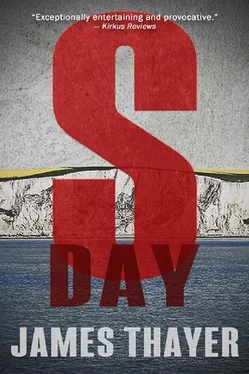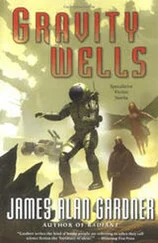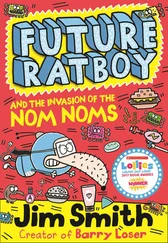James Thayer - S-Day - A Memoir of the Invasion of England
Здесь есть возможность читать онлайн «James Thayer - S-Day - A Memoir of the Invasion of England» весь текст электронной книги совершенно бесплатно (целиком полную версию без сокращений). В некоторых случаях можно слушать аудио, скачать через торрент в формате fb2 и присутствует краткое содержание. Год выпуска: 2015, Издательство: Sacajawea Publishing, Жанр: Альтернативная история, Триллер, prose_military, на английском языке. Описание произведения, (предисловие) а так же отзывы посетителей доступны на портале библиотеки ЛибКат.
- Название:S-Day: A Memoir of the Invasion of England
- Автор:
- Издательство:Sacajawea Publishing
- Жанр:
- Год:2015
- ISBN:нет данных
- Рейтинг книги:3 / 5. Голосов: 1
-
Избранное:Добавить в избранное
- Отзывы:
-
Ваша оценка:
- 60
- 1
- 2
- 3
- 4
- 5
S-Day: A Memoir of the Invasion of England: краткое содержание, описание и аннотация
Предлагаем к чтению аннотацию, описание, краткое содержание или предисловие (зависит от того, что написал сам автор книги «S-Day: A Memoir of the Invasion of England»). Если вы не нашли необходимую информацию о книге — напишите в комментариях, мы постараемся отыскать её.
S-Day: A Memoir of the Invasion of England — читать онлайн бесплатно полную книгу (весь текст) целиком
Ниже представлен текст книги, разбитый по страницам. Система сохранения места последней прочитанной страницы, позволяет с удобством читать онлайн бесплатно книгу «S-Day: A Memoir of the Invasion of England», без необходимости каждый раз заново искать на чём Вы остановились. Поставьте закладку, и сможете в любой момент перейти на страницу, на которой закончили чтение.
Интервал:
Закладка:
Clay smiled thinly. “You men save your anger for when the German is armed and coming at you. It’ll serve you well then.”
“Dismissed,” yelled Colonel Simpson.
Chastened, the soldiers seemed only too happy to disperse.
The general lowered himself to the seat and looked over his shoulder at me. “Did you see that goddamn spy laugh when I saved his ass?”
I had.
“I was tempted to change my mind right then, line him up in front of a firing squad like I did to that Edison back on the beach. The goddamn ingrate.”
“Not only was he spying on us, he’s ungrateful.” I shook my head. “Can you imagine?”
“Hardly, no,” Markham smiled.
“Just because my aide in the back seat is a wise ass doesn’t mean you can be too, Corporal. Let’s go.”
We backed down Mermaid Street to return to the Cub.
2
Wilson Clay treated the press as if he were an elected official. He granted frequent interviews and told reporters what he could, which was usually little. When he arrived back at his headquarters at Eastwell, Donald McDonald of Reuters and Jerry Ness of United Press were waiting for him at his trailer. He waved them in and said, “Everything is off the record unless I say otherwise.”
Both reporters sat in the uncomfortable wood chairs across from the built-in settee. Their reports were censored in any event.
“You two had breakfast?” Clay asked.
“I got an early start, and just had coffee,” McDonald replied. The Reuters correspondent was the dean of war reporters, having filed his first stories from Cuba during the Spanish-American War. His hair was yellow-white, the color of an old newspaper. His skin was the same hue, the result of his struggle with malaria, which had almost killed him thirty years before, when he was posted in Panama, and which occasionally recurred. His jaw was unnaturally cut, as if drawn with a T-square. He wore rimless spectacles and this past month had started using a cane. “If you’ve got breakfast, I’ll eat it.”
“Same here,” Ness said, drawing a pad from his shirt pocket. Ness was a favorite of the GIs because in 1918, during the second Battle of the Marne, he had dropped his paper and pen and crawled out of a trench to drag wounded American soldiers back to safety. Claiming he was a bit deaf, he always kept his left ear cocked toward the person he was interviewing, and he wore a puzzled expression, as if he were not quite hearing the words. He told me once he could hear perfectly well, but people always said more if they thought the reporter wasn’t quite getting it all. Ness had a high forehead, emphasized by his dark hair, which he wore slicked back. His eyes, set far back in his face, reflected his intelligence and humor.
“Charley, have the cook set up four breakfasts, will you?”
Corporal Charles Elliot was the general’s orderly. He emerged from the trailer’s kitchen nook and left for the manor house.
Ness tilted his head at General Clay. “Speculation around the news corps is that they’re coming tonight. I don’t suppose you have any publishable thoughts on that, do you, General?”
“None.”
“Or where they’ll come?” McDonald asked. He didn’t even have his pen out. He knew the routine.
“No.”
“Anything we can send back home?” Ness tried again.
The general’s eyebrows narrowed in thought. “If the German attempts an invasion of England, historians will mark it as the beginning of the end of the Third Reich. How’s that?”
“A little too quotable, General,” Ness said, writing it anyway.
“Put this down, then. The American Expeditionary Force is ready for anything. I have utter confidence in our soldiers.”
“We can always count on you for special insights, General Clay,” Ness said sardonically.
Clay laughed. He removed one of his shoes and rubbed the ball of a foot. “You wouldn’t think someone who sits on his butt all day would get such damn sore feet.”
“Can we quote you, General?” McDonald asked.
“No.”
“I’ve got a deadline,” Ness pleaded. “I need something.”
“Look around my setup here,” General Clay suggested. “Tell your readers how I live.”
“You must think we write for Life ,” McDonald growled. Nevertheless, he and Ness stood to tour the trailer.
There wasn’t a lot of furniture or much of anything else. The trailer had a living room, a galley, and sleeping quarters. It was decorated with framed photographs of his wife Margaret, perhaps a dozen photos, some on the walls, several on his desk. Also on the desk were three phones installed by the Signal Corps. The red phone was a direct link to Washington, the green to the cabinet war rooms in London, and the black to his headquarters in the manor house nearby. Just before the reporters arrived, Corporal Elliot had swept all documents on the desk into a drawer, as he always did.
The general slept on a canvas and wood cot. Detective novels were piled on the lamp table, a fact both reporters noted in their pads. A cardboard trunk containing cold weather uniforms was at the foot of the bed. Another photograph of Margaret stood on a bedside table.
With little to look at, McDonald and Ness moved from the cramped bedroom through the main room, where the general was still rubbing his feet, into the galley. Next to the small sink was a basket of mottled apples, a pile of C-ration tins, and a pitcher of water. Ness poured himself a glass. The shelves were bare.
When they resumed their seats, McDonald commented, “This trailer isn’t as swank as I might’ve expected from a full general.”
“I’ve got all I need,” Clay replied in that humble fashion he could generate once in a while.
Charley Elliot returned with breakfast, stacked on trays. He passed them around. The general sat at his desk, and the reporters and I used our knees to balance the trays. Scrambled eggs, ersatz sausage, and a cup of apple juice.
General Clay poked at his eggs, sniffed a forkful of them, then turned to his orderly. “Charley, these look real.”
“They are, sir. The old man who owns the place over by the pond brought by a dozen eggs for you this morning.” Elliot was a slight man, with curly blond hair and a fidgety manner. His job was to be always at the ready, and he excelled at it.
“You know my rule, Charley,” Clay said patiently.
“Yes, sir. You don’t eat better than the men in the field. But I thought that since you’ve got guests this morning, you ought to serve some real eggs.”
“Take these away, and bring the powdered ones,” the general ordered.
Elliot quickly gathered the trays, almost having to wrestle the plate of fragrant eggs away from McDonald. He pushed the trailer’s door open with his foot and sprinted toward the house.
Ness rose from his chair. “I don’t see any profit in waiting around for those wretched powdered eggs, General. Thanks for the interview, such as it was.”
“Any time.” Clay gestured expansively. “Glad to be of help.”
As McDonald and Ness filed out of the trailer, the general smiled conspiratorially at me. When the door closed, he asked, “Think they bought it?”
The interview had been a staged production. The detective novels were props. General Clay never read them. His bedtime reading was anything but relaxing. He read Cromwell on the problems of morale and command. He read Frederick’s Instructions for his Generals , Marshal de Saxe’s Reveries , and Guibert’s Essay on Tactics . And he studied whatever he could find written by the enemy: General Eimannsberg’s Der Kampfwagenkrieg (Tank War), General Guderian’s Achtung Panzer , even Tante Friede , which means Aunt Friede, the German infantry officers’ nickname for their manual. General Clay read in German, French, and English, and he never read anything for pleasure.
Читать дальшеИнтервал:
Закладка:
Похожие книги на «S-Day: A Memoir of the Invasion of England»
Представляем Вашему вниманию похожие книги на «S-Day: A Memoir of the Invasion of England» списком для выбора. Мы отобрали схожую по названию и смыслу литературу в надежде предоставить читателям больше вариантов отыскать новые, интересные, ещё непрочитанные произведения.
Обсуждение, отзывы о книге «S-Day: A Memoir of the Invasion of England» и просто собственные мнения читателей. Оставьте ваши комментарии, напишите, что Вы думаете о произведении, его смысле или главных героях. Укажите что конкретно понравилось, а что нет, и почему Вы так считаете.












